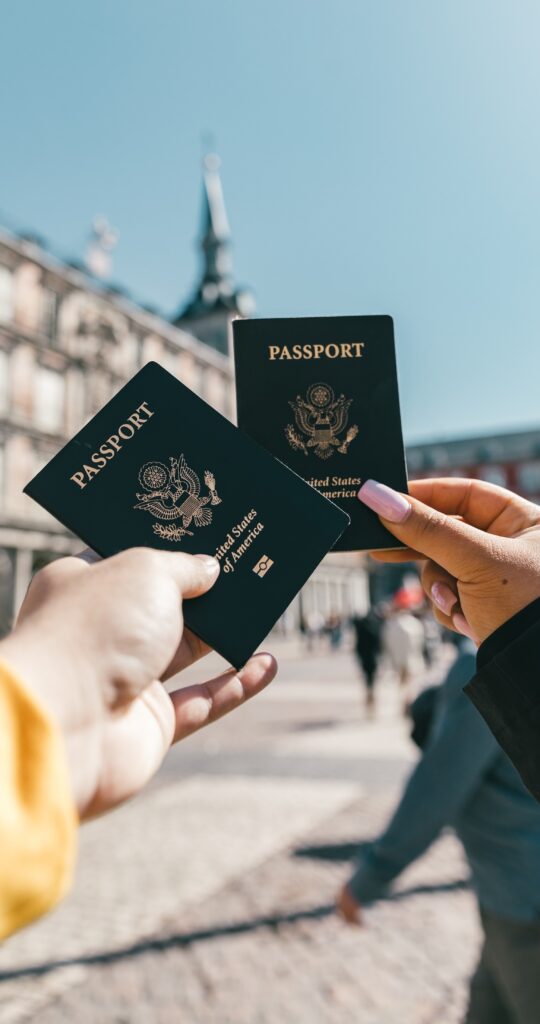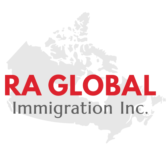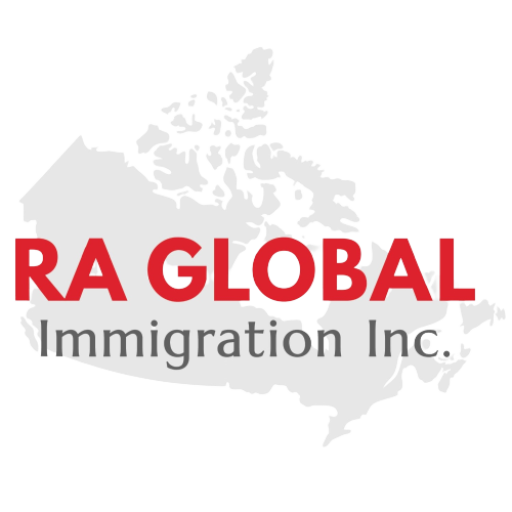Visa and Permits
Your Trusted Partner: Rachit Arora's RA Global
Study Permit (Study visa)
Studying in Canada is an exciting and rewarding experience for many international students.
You must consider entrance requirements, application processing periods, student visa processing times, and English language requirements when choosing a course of study.
To apply for a study permit, you need:
- An acceptance letter from a Designated Learning Institution (DLI)
- A valid passport or travel document
- To be in good health, you may need to complete a medical exam
- Be a law-abiding citizen with no criminal record and not be a risk to the security of Canada; you may have to provide a police certificate
- Proof that you have enough money to pay for your tuition fees, living expenses, and return transportation for yourself and any family members who come with you to Canada
- Convince an immigration officer that you will leave Canada at the end of your studies


Visitor Visa (Tourist Visa)
A visa is a legal document, generally stamped or affixed to a passport, that permits you from a foreign government to enter a country. Embassies of foreign countries in Canada issue visas. It proves your eligibility for entry into Canada.
Eligibility
To obtain a visitor visa, you must fulfill a few prerequisites. You have to:
- be in good health
- possess a valid travel document
- demonstrate enough funds for your stay
- not have any convictions for crimes or immigration-related offenses
- convince an immigration official that you’ll be leaving Canada after your visit is over
- persuade an immigration official that you have ties to your native country, such as a job, residence, financial resources, or family
A medical examination and an invitation letter from a Canadian citizen may also be required.
Documents Required
Here are the documents required for a Canada visa:
- Valid travel document
- A receipt for the Canada visa payment
- Appropriate application for a permit to Canada
- Support letter/invitation to Canada
- Proof of excellent health obtained by a medical examination
- Evidence of financial capacity
- A letter of introduction outlining why you’re visiting Canada
- Proof that after your Canadian visa expires, you’ll go back home
- Documents proving identity and civil status
- Photos that meet the criteria for photo submission for a visa to Canada
Temporary Resident Permit
Any foreign individual entering Canada from a nation that does not have a visa waiver must have a TRP (Temporary Resident Permit). A medical examination and a police clearance certificate will also be required.
People who meet the requirements can apply for a TRP:
- Inadmissible and seeking to come into Canada if an officer believes that it is justified in the circumstances;
- in Canada and is inadmissible, subject to a report or reportable for violation of the Act, or does not otherwise meet the requirements of the Act;
- not eligible for restoration of status.
Specific evaluations are conducted before a TRP can be granted. They could be discussed as follows:
- The primary reason for the individual’s stay in Canada
- The type/class of application and the relevant family structure, both back home and in Canada
- If medical treatment is necessary, determine if it is fairly accessible in Canada or overseas and its expected effectiveness
- The potential benefits, either physical or intangible, to the subject and others
- A description of the potential advantages for the concerned person and others
Super Visa
The Super Visa Program enables grandparents and parents to move permanently to Canada. Successful applicants won’t have to renew their visiting visa every six months anymore because they’ll be awarded a multi-entry visa with an expiration date of up to 10 years.
You can apply online or on paper for a parent and grandparent super visa. There are requirements that you must meet as well in to apply. The parent or grandparent super visa has additional conditions, including being the parent or grandparent of a Canadian citizen or permanent resident of Canada.
An officer will consider the following factors when you apply:
- Your ties to your home country
- The purpose of your visit
- Your family and finances
- Invitation letter from the host
- Appear for an immigration medical exam
- The overall economic and political stability of your home country
- Possess valid Canadian medical insurance coverage for at least one year
- Prove that your child or grandchild in Canada meets a minimum income threshold
- Produce a written statement from that child or grandchild that he or she will give you financial support
Canadian Business Immigration Programs
Significant Benefit Work Visa
It is intended for self-employed workers and entrepreneurs who may significantly advance Canada’s culture, society, or economy or who will open doors for its citizens or long-term residents.
Intra-Company Transfer
ICT can be an excellent option for you if your company has a steady stream of income. You might run your own company or work for one that will sponsor you to oversee its international activities. If you said “yes,” the intra-company transfer is your easiest, quickest, and least expensive choice!
Start-Up Visa
Through the Start-Up Visa Program, the federal government tries to attract eligible entrepreneurs with innovative and globally competitive business ideas with the overriding objective of generating new employment and promoting economic growth in the nation.
The federal Start-Up Visa program requires a Letter of Support from a specified organization, unlike the regional provincial nominee programs targeted at entrepreneurs. These groups include incubators and investors (angel and venture capital) who might be interested in funding your concept.
This is the only type of visa that enables immigrant company owners to apply for immediate permanent residency, which encourages them to start their companies in Canada.


Immigration Programs Under Express Entry
Federal Skilled Worker (FSW)
The skilled federal program, which assists people who fit the requirements for their permanent move to Canada, is a crucial part of an express entrance.
To qualify for an FSW program, a person must have worked for NOC 0, A, or B continuously for at least one year, or 30 hours per week, during the previous 10 years.
Eligibility:
The following criteria would be used to evaluate the candidate’s eligibility concerning the minimal requirements:
- age and education
- work experience
- A valid job offer
- English and/or French language skills
- adaptability
Minimum requirements:
- Must have a high school diploma or the equivalent;
- Must have proof of funds to support their application;
- Must intend to settle in Canada;
- Must have at least 1 year of continuous work experience or 1,560 hours total (30 hours per week) in NOC TEER categories 0,1,2, or 3 in the last 10 years;
- Must have a minimum CLB 7 in all 4 modules of an approved English or French test;
Canadian Experience Class (CEC)
The CEC is part of a coordinated effort by Canada’s federal and provincial governments to persuade more foreign students and temporary workers to build their futures in this country.
CEC immigrants are more likely to succeed in the labor market if they are young or middle-aged, have high levels of education, and work experience, and education, as well as have built up social and professional networks in Canada.
The most typical route for a foreign student to apply for permanent residency in Canada through the CEC is as follows:
Step 1: Complete your educational program at a learning institution recognized by Canada.
Step 2: Apply for a Post-Graduation Work Permit (PGWP) at IRCC.
Step 3: Acquire at least 1,560 hours of Canadian work experience in a NOC TEER category 0, 1, 2, or 3 jobs while using your PGWP.
Step 4: Pass the required Canadian Language Benchmark (CLB) test in either English or French, as approved by IRCC.
Step 5: Enter the Express Entry pool- The IRCC will attempt to process your application for permanent residency within a minimum of six months if you are granted an invitation to apply.
Family Sponsorship
Canadian Family Sponsorship
A Canadian family can sponsor a member of your family so they can immigrate to Canada and gain permanent status. It calls for personal commitment to providing for that person’s basic needs as well as financial assistance
You must fulfill a few requirements before you can sponsor a family member, including-
- 18 years of age or older
- A Canadian citizen or permanent resident of Canada
- Ability to support the sponsored person for several years
You can sponsor the following people:
- Spouses and common-law partners
- Dependent children
- Parents and grandparents
Steps to apply for family sponsorship:
Step 1: Verify your eligibility to serve as a sponsor.
Step 2: Verify that the family members you want to sponsor are eligible.
Step 3: You must submit your application to the Ministry of Immigration, Refugees and Citizenship Canada at the federal level (IRCC). Then, you must submit your application for sponsorship along with those for your family members’ permanent residency (PR) status.
Your PR application will be examined once you have been approved to sponsor.
Step 4: You must pay the application fee for family sponsorship.
Step 5: Send your application to the correct address. This information can be found in the sponsorship guide, which can be downloaded from the government website.
Spousal Sponsorship
Applications for spousal sponsorship are handled with the utmost care at Canadian Visa Offices since Immigration, Refugees and Citizenship Canada actively supports spousal sponsorship (IRCC).
Your temporary status will become permanent if you decide to apply for spousal sponsorship within Canada. If your application is approved, it will be dealt with first. The spouse of a Canadian citizen may apply for an Open-Work Permit while still residing in Canada thanks to spousal sponsorship.
Some of the basic requirements are:
- be 18 years of age, a Canadian permanent resident living in Canada, or a Canadian citizen,
- demonstrate that you can provide for the basic needs of yourself and your spouse or partner,
- Prove your relationship with the sponsored person is genuine by providing supporting documentation.
Your dependent children, whether biological or adopted, can apply to become permanent residents in Canada and live with you.
To qualify for sponsorship, a child must fit the following definition of a dependent child:
- If a child is under 22 years old, is not married, or is in a common-law relationship, they are regarded as a dependent.
- A child who is older than 22 years old and has a physical or mental impairment that makes it impossible for them to sustain themselves may be regarded as a dependent.
To be eligible under this program, you:
- You and your child abroad must be accepted by Immigration, Refugees and Citizenship Canada (IRCC) to acquire a visa to be eligible for this program
- You must also demonstrate your relationship to the child you are sponsoring, either through a birth or adoption certificate.
Parent Sponsorship
It’s difficult to leave home and your parents on the other coast when you move away. One of the objectives of the Canadian government is to bring families back together. In addition to spousal sponsorship, the second widely sought-after immigration path within the family class is that of the grandparents and parents.
If a parent’s immigration program is not a possibility for you right now, you might want to think about other temporary residence options, such as a super visa or a visiting visa.

Provincial Nominee Programs (PNPs)
The provincial nominee programs (PNPs) provide a path to Canadian permanent residency for those who want to immigrate to a certain province or territory.
Each province and territory in Canada has a unique PNP designed to meet its own economic and demographic needs.
Candidates who are chosen are given a provincial nomination, which they can use to apply for permanent residence with Immigration, Refugees, and Citizenship Canada (IRCC).
Provincial Nominee Programs and Express Entry
It is possible to submit “enhanced” nominations that provide candidates 600 extra Comprehensive Ranking System (CRS) points thanks to the majority of provinces and territories having selection systems integrated with the federal Express Entry system.
A provincial nomination is the single most crucial element of the CRS because it practically guarantees that the candidate will receive an Invitation to Apply (ITA) in a subsequent draw from the pool.
Candidates for Express Entry are assigned a CRS, a score out of 1,200 that decides which candidates will be issued an ITA for permanent residency. With these 600 extra points, the applicant would nearly always be granted an ITA during the Express Entry draw rounds.
How to apply for a Provincial Nominee Program in Canada?
Here is a step-by-step guide to applying to a Canadian PNP:
- Look for the PNP that is the best fit for you: Check out the list of provinces and territories at the top of this page to decide where you wish to relocate. Check the requirements of each PNP to see if you meet them.
- Directly apply to the province or territory of your choice if you want to participate in your selected PNP.
- Obtain a provincial nomination certificate. If your application is approved, the province or territory will nominate you to apply for Canadian permanent residency.
- Submit a permanent resident application: Contact the Canadian government to submit a permanent resident application. If your preferred PNP is compatible with Express Entry, you can finish this online. If not, a paper application must be completed.
Citizenship Services
To acquire citizenship in Canada, one must keep the following things in mind.
To become a Canadian citizen, the applicants must:
- be a permanent resident
- pass a citizenship test
- have filed their taxes
- prove their language skills in English or French
- have lived in Canada for at least 3 out of the last 5 years
Following the application, one must appear for a test. The test shows us what you know about Canada.
Questions asked majorly revolve around the rights and responsibilities of Canada and Canadians:
- history
- geography
- economy
- government
- laws
- symbols
When appearing for the test, one must carry the following documents:
- Notice to Appear
- PR identification card (in case you had one)
- 1 form of identification featuring your picture and signature, such as a health card or driver’s license
- foreign ID documents must be government-issued (Canadian ones don’t need to be government-issued)
- if not in English or French, provide a translation with an affidavit from the translator
- All of the passports and travel documents you listed on the application form, both current and expired
- Any certificates, diplomas, degrees, or transcripts that attest to your proficiency in either English or French

FAQ Questions
Canadian permanent residents and their dependents are entitled:
- To practically all social benefits that Canadian citizens are entitled to, including Canadian health care.
- To reside, work, and attend school in any province or territory of Canada.
- To eventually apply for citizenship in Canada.
- To defend under the Canadian Charter of Rights and Freedoms and the law.
One of only two internationally recognized examinations for English language proficiency is the International English Language Testing System (IELTS).
It is one of the most commonly accepted language examinations for newcomers to Canada and is intended to indicate a newcomer’s competency in the English language. Every year, tens of thousands of people take the IELTS in order to immigrate to Canada.
The Comprehensive Ranking System is a system used internally by the Canadian government to rank applicants according to their human capital, which is based on variables including age, education level, and language proficiency.
This makes it easier for Immigration, Refugees and Citizenship Canada (IRCC) to choose which applicants to invite to submit applications for permanent residence. The approach allows candidates to receive up to 600 points for their core human capital and transferable abilities.

